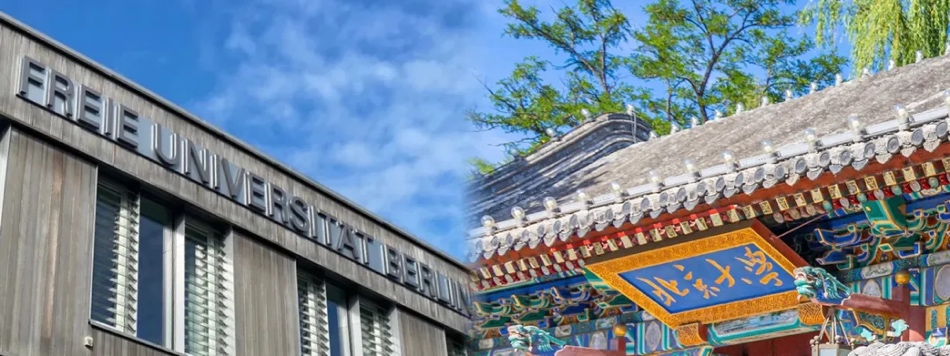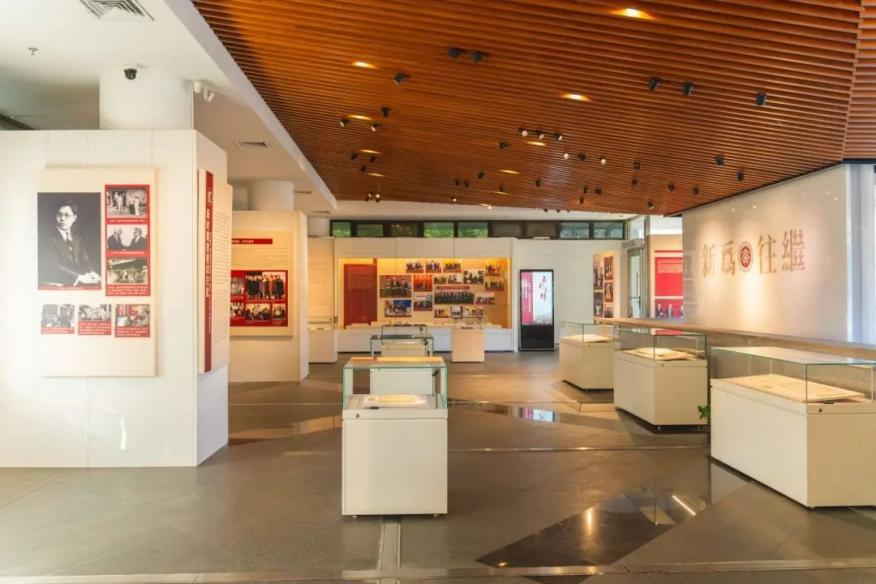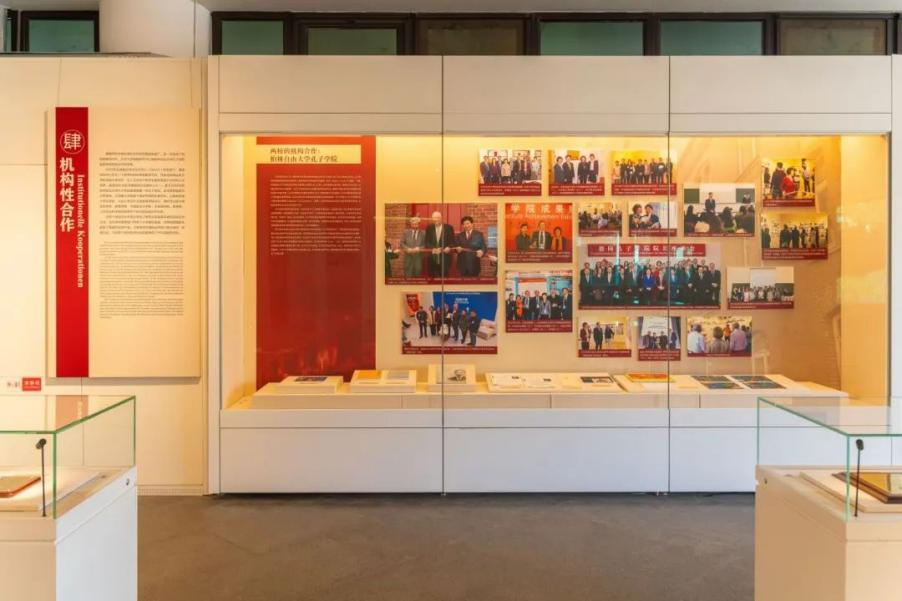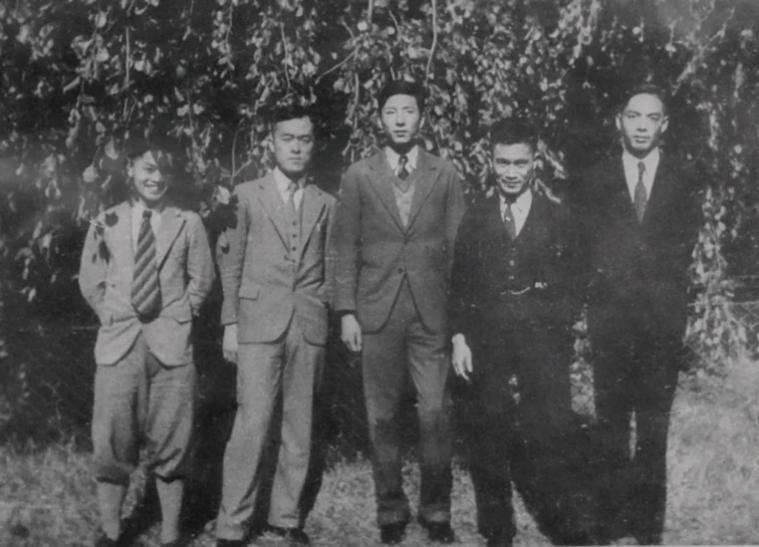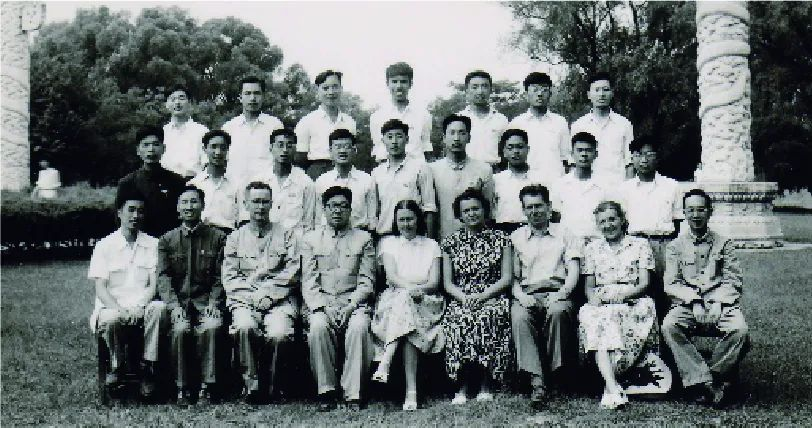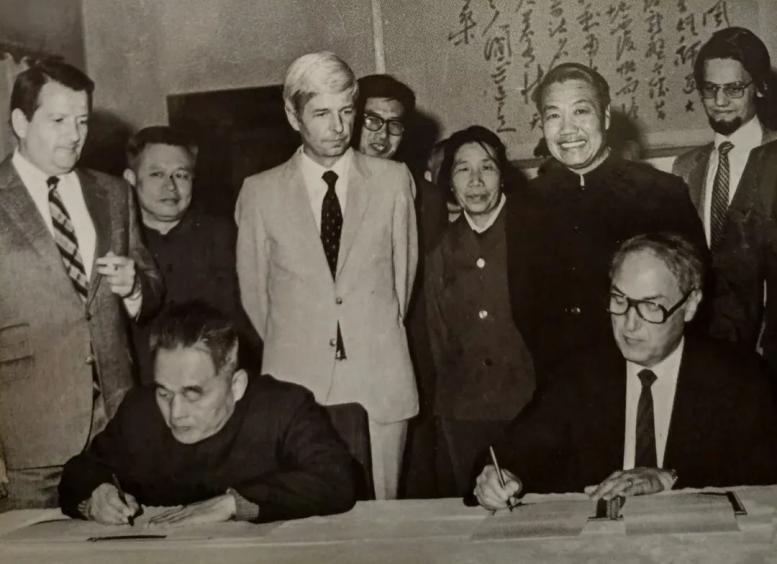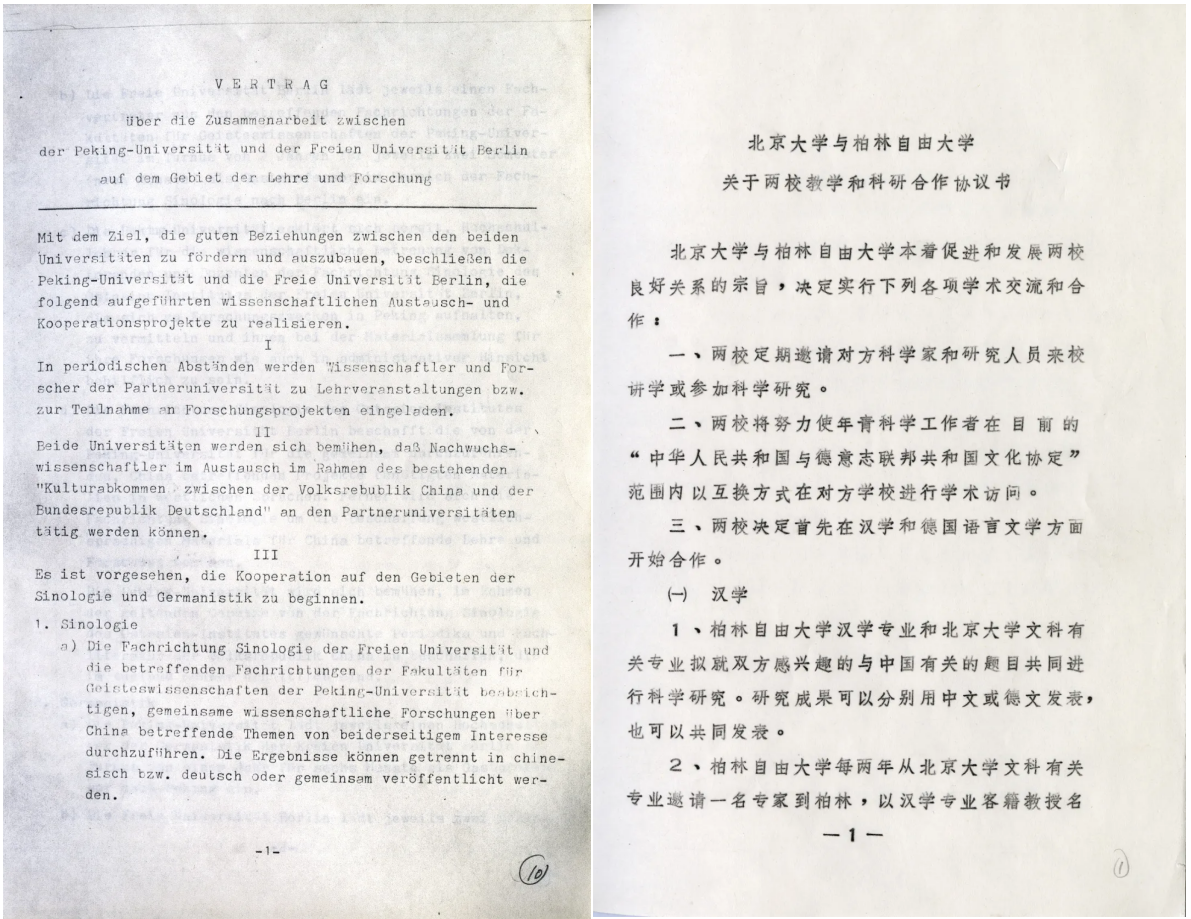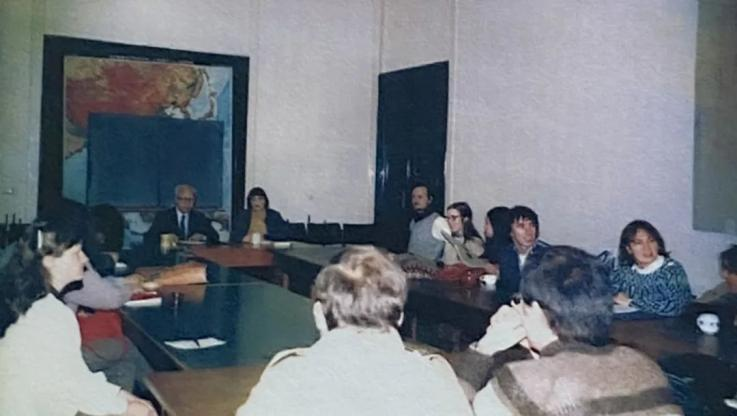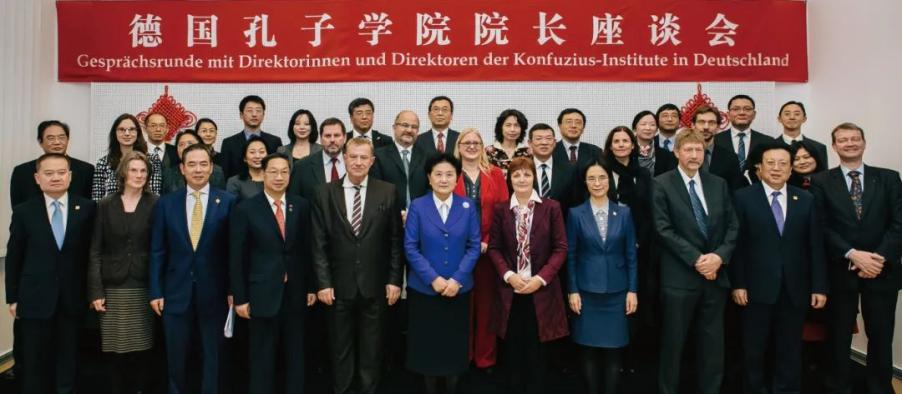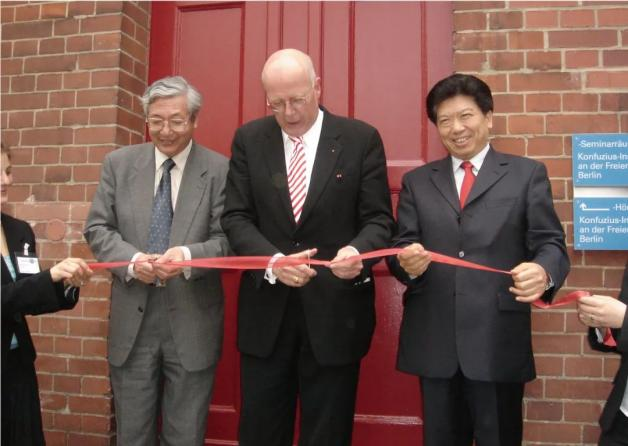Peking University, December 19, 2024: This year marks over 40 years of academic collaboration between Peking University and Freie Universität Berlin. To celebrate this milestone, Peking University and the Freie Universität Berlin Confucius Institute are hosting the PKU-FUB 40th Anniversary Commemorative Exhibition of Cooperation and Exchange at Museum of Peking University History from November 4 to December 5, 2024.
The interior of the PKU-FUB 40th Anniversary Commemorative Exhibition of Cooperation and Exchange
The exhibition reflects the rich history of the two universities in collaboration and their shared vision for addressing global challenges, fostering innovation, and advancing knowledge in a globalized world.
A Historical Foundation: Roots of Academic Exchange
In 1919, Peking University established its German Studies Department, becoming a hub for cultivating expertise in the German language and literature in China. Throughout the 20th century, returning Chinese scholars who had studied in Germany, including renowned figures such as Cai Yuanpei, Ji Xianlin, Feng Zhi, and Tian Dewang played key roles in advancing these Chinese-German cultural exchanges.
Ji Xianlin with Chinese students in Germany
1957, Feng Zhi (fourth from the left), Zhao Linke Ti (fifth from the left), and Tian Dewang (first from the right) were photographed with the graduating class of the German language programme at Peking University.
During the early years of the People’s Republic of China, Peking University collaborated closely with East German universities, including Leipzig University. Under Feng Zhi’s leadership, Peking University’s German Studies Department became a leading center for German linguistic and literary research in China.
Expanding Collaboration Across Disciplines
6 April 1981, Peking University Vice President Wang Lubin (left of front row) and Freie Universität Berlin President Eberhard Lämmert (right of front row) signing the agreement in Beijing.
Agreement between Peking University and Freie Universität Berlin on Cooperation in Teaching and Research (left: German, right: Chinese)
The partnership between Peking University and Freie Universität Berlin began with exchanges in Sinology and German Studies and later expanded into joint research, teaching, and talent development. Key milestones include the 2019 co-translation of the "Historical-Critical Dictionary of Marxism" into Chinese and the early 2000s "Chinese History Online" project, promoting shared teaching materials and course modules.
Winter semester 1983/1984, Zhao Baoxu gave a series of lectures on ‘Political Studies in Contemporary China’ at the Seminar of East Asian Studies of the Freie Universität Berlin.
Today, student exchanges, joint degree programs, and institutional initiatives, such as the German Studies Center of Peking University and the Confucius Institute of Freie Universität Berlin, continue to deepen cross-cultural understanding and academic collaboration. Founded in 2006, the Confucius Institute remains a crucial hub for exploring China’s history and fostering dialogue in Germany.
November 2016, Freie Universität Berlin hosted a symposium of German Confucius Institute Directors
27 April 2006, Peking University President Xu Zhihong (left), Freie Universität Berlin President Dieter Lenzen (middle) and Chinese Ambassador to Germany Ma Canrong (right) cut the ribbon for the Confucius Institute at Freie Universität Berlin.
Looking ahead: A vision for the future
As the world becomes increasingly interconnected, Peking University and Freie Universität Berlin stand poised to explore new fields of cooperation, setting benchmarks for international academic collaboration.
Knowledge knows no borders, and collaboration creates the future. With a legacy built on mutual respect and shared success, Peking University and Freie Universität Berlin continue to chart new territories, ensuring their friendship and collaboration remain a model for academic partnerships worldwide.
Freundschaft für immer! (Friendship forever!)
Written by: Chia Hui Qin
Edited by: Aden Tan
Source: Peking University News (Chinese)
